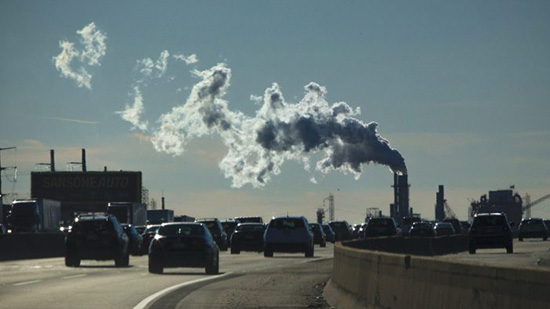
|
上周,沃尔玛限制枪支销售的公告看来和上个月的美国商业圆桌会议(BRT)声明相符,后者表示要重新设定企业“服务所有美国人”的整体目标框架。它超越了服务股东的狭小境界,推广的是以多个利益相关方为导向。180多位龙头企业首席执行官都加入了进来。支持者和批评者都错误地认为这样的延伸背离了1972年BRT成绩以来的愿景。 实际上,BRT的那些创始人都强烈提倡企业社会责任,包括员工福利、公平机会、环境管理以及企业诚信行为——这和工商业界现在的ESG标签一致,也就是环境、社会和治理。杜邦前CEO埃尔文·夏皮罗、IBM前董事长托马斯·沃特森和通用电气前CEO雷金纳德·琼斯等BRT领导者都是《超级基金清理和加速法》(Superfund Cleanup and Acceleration Act)和《反海外腐败法》(Foreign Corrupt Practices Act)的倡导者,而且在工作中用行动予以肯定。 本次的最新BRT公告挑战了经济学家米尔顿·弗里德曼的训诫,即“企业的社会责任是增加利润”,并且只关注最主要的股东。实际上,弗里德曼这番话并非强调特权行为,而是意在矫正当时企业行善者猛增的局面。此外,尽管这番话的剩余部分已被人们遗忘,但它承认:“将资源用于向社区提供福利或许非常符合企业的长期利益……。” 不过,BRT最近提出的整体企业目标立即受到了批评。有些人担心这偏离了股东资本主义,从而削弱业绩责任制,同时是为了安抚极左翼改革派。对他人来说,这个目标似乎是一种粉饰行为,目的是掩盖企业的自身利益。 但美国环境保护署(EPA)为工商业界提供了一个机会,以便后者履行承诺,用可信的行动来验证那些崇高的话语。上周,EPA表示它有意放宽对天然气开采过程中甲烷泄露的监管。此项政策将取消至关重要的环保措施,而如今解决温室气体排放和气候变化的紧迫性已经达到了前所未有的程度。但EPA的数据显示,甲烷约占美国全部温室气体排放量的10%,而大概三分之一的甲烷排放都来自天然气和石油行业。 许多石油和天然气公司已经表示反对放宽此项监管,它们担心的问题和尾气排放标准下降时四大汽车公司的顾虑类似。举例来说,壳牌美国业务总裁格雷琴·沃特金斯强调,他们承诺在2025年以前将甲烷泄露比例降至0.2%以下。上上周,英国石油总裁苏珊·迪欧表示支持EPA提高标准:“这不仅是有利于环境的正确行为,从商业角度讲这样做的依据也很清晰。” 在能源行业的其他领域,许多公用事业公司对EPA降低汞污染限定标准提出了警告,此项监管可以节省800亿美元的医疗保健费用,原因是它减少了汞引发的健康和婴幼儿夭折问题。在要求保留此项规定的同时,业内许多公司表示96亿美元必要合规资金中的绝大部分已经花了出去。 为坚持整体目标原则,当政府推出的政策无法应对不断增大的环境威胁时,龙头企业有必要发挥带头作用。 首先,企业在这方面可以和想法类似的公司联合。最近发表在《美国政治学评论》(American Political Science Review)上的一项研究指出,公司参与战略性自我监管的广度是其成功的关键。共同采取行动时影响更大,CEO们面临政治报复的风险也较小。 其次,企业可以直接和别人分享他们对有害甲烷、水银以及其他污染物排放的研究,从而找出控制方法,同时为自己设定更高的标注。 第三,企业负责人可以打造其意向的可信度,办法是引进独立审计机构,由后者来评估他们遵守这些标准的情况,从向公众披露结果。 最后,他们可以和下游用户及消费者联手,让后者将采购转向遵守标准的公司,从而给其他公司带来压力,进而效仿其行为。 自我监管并不是新鲜事物。从中世纪起,职业行会就设定了行为规范,并且会惩罚违规者。在工业领域,这些规范形态不一,既有美国金融业监管局,也有美国保险商实验室(UL)120年来通过强化安全、危险品和优质产品性能方面的自愿制造标准而在全球取得的成功。 采取这些行动将表面尊重整个社会利益的真正意愿,作为回报,就能得到民众和社会的更大信任,甚至是在一定会存在一些怀疑者的情况下。这进而加大了公司运营的自由度,而且应当为包括股东在内的所有人创造长期价值。不作为,或者所认可的计划在别人看来无法应对不断增大的气候变化威胁,不光会给企业本身带来风险,还会将工商业绩乃至整个社会置于风险之下。(财富中文网) 里奇·李瑟是波士顿咨询公司首席执行官和美国商业圆桌会议成员。杰弗里·索南菲尔德是耶鲁管理学院高级副院长。 译者:Charlie 审校:夏林 |
This week’s announcement by Walmart on limiting its own gun sales seems to match last month’s Business Roundtable (BRT) statement to re-frame the broader purpose of a corporation “that serves all Americans.” Over 180 CEOs of leading companies joined this statement, which, beyond merely serving shareholders, promotes a multi-stakeholder orientation. Supporters and critics wrongly saw this extension as a departure from the mission of the Business Roundtable since its creation in 1972. In fact, the BRT founders were strong advocates of corporate social responsibility regarding employee welfare, equal opportunity, environmental stewardship, and honest business practices—consistent with what the business community now labels “ESG,” environmental, social, and governance principles. BRT leaders—such as Irving Shapiro of DuPont, Thomas Watson of IBM, and Reginald Jones of GE—advocated for the Superfund Cleanup and Acceleration Act, the Foreign Corrupt Practices Act, and affirmative action in the workplace. This latest Business Roundtable edict supposedly challenged economist Milton Friedman’s admonition that “the social responsibility of business is to increase its profits” with a focus only on the supremacy of shareholders. In reality, Friedman’s statement was not to underscore prevailing practice, but was meant as a correction to the then-surge of corporate do-gooders. Furthermore, even the forgotten rest of Friedman’s commentary acknowledged, “It may well be in the long-run interest of a corporation… to devote resources to providing amenities to that community.” Nonetheless, the recent BRT statement of a broader business purpose was greeted with immediate criticism. Some raised concerns that this was walking away from shareholder capitalism, would lead to less accountability for performance, and was appeasement to far left progressives. To others, it seems like window-dressing to cover up corporations’ self-interest. But the U.S. Environmental Protection Agency (EPA) has provided an opportunity for the business community to demonstrate its commitment to match lofty words with credible actions. Last week, the EPA stated an intent to roll back regulations around methane leaks in natural gas extraction. This policy would eliminate critically important environmental protections when the need to address greenhouse gas emissions and climate change have never been more urgent. Yet, according to the EPA, methane accounts for around 10% of all U.S. greenhouse gas emissions. Roughly a third of those emissions are generated by the natural gas and petroleum industry. A number of oil and gas companies have already opposed this rollback in regulations, similar to the concerns expressed by four automakers to a rollback in emission standards. For example, Gretchen Watkins, Shell U.S. president, underscored their pledge to reduce its methane leaks to less than 0.2% by 2025. Also last week, BP President Susan Dio stated support for tighter EPA standards: “It’s not only the right thing to do for the environment, there is also a clear business case for doing this.” Elsewhere in the energy industry, many utility companies, reacted with alarm over EPA rollbacks of mercury contamination limits, regulation which was linked to $80 billion in health care savings, due to the estimated reduction of Mercury-related health issues and premature deaths. In requesting the preservation of the rule, many in the industry reported that they already spent most of the $9.6 billion in necessary compliance costs. To be true to their principles of a broader sense of purpose, when the government issues policies that fail to address the rising climate threat, it is necessary for leading companies to lead. Businesses can do so by, first, aligning with other like-minded firms. A recent study published in the American Political Science Review indicates that the breadth of firm participation in strategic self-regulation is essential to its success. It is more impactful and CEOs face less risk of political reprisal when they act in concert. Second, companies can directly share their research on harmful methane emissions, mercury, and other pollutants, thereby outlining a method of control, and articulating a higher set of standards for themselves. And, third, corporate leaders can create credibility for their intent by engaging independent auditors who will assess their adherence to these standards and publicly communicate results. Finally, they can engage downstream users and consumers to shift their purchases to those who follow these standards and thereby create pressure on other companies to follow suit. Self-regulation is not new. Since medieval times, professional gilds set standards for practice and disciplined violators with sanctions. In industry, there are varied forms, ranging from the Financial Industry Regulatory Authority (FINRA) to the UL’s 120 years of global success enforcing voluntary manufacturing standards for safety, hazardous substances, and quality product performance. Taking these types of actions will show real intent to respect broader societal interests, and in return, could earn greater trust from citizens and society, even if some skeptics are certain to remain. In turn, this will strengthen companies freedom to operate and should contribute to longer term value creation for everyone—including shareholders. Inaction, or being perceived to endorse an agenda that fails to meet the rising threat of climate change, poses a risk to not only the companies themselves, but the broader business community, and society as a whole. Rich Lesser is CEO of the Boston Consulting Group and a member of the Business Roundtable. Jeffrey Sonnenfeld is the senior associate dean at the Yale School of Management. |






